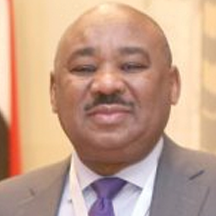In a nutshell
Recent macroeconomic shock waves are making a weak economic situation catastrophic: some MENA countries are already in a severe economic and political crisis; in others, public debts are rising fast to unsustainable levels.
Relying on austerity alone, with no hope of a better future, risks generating a social explosion: a convincing response is now needed to avoid falling into a vicious cycle of economic, social and political decline.
National renewal strategies are necessary to ignite growth, but this will be insufficient: structural reforms – including democratising the business sector and modernising the state – are vital to liberate societies’ potential for innovation and hard work.
Much has been written about the weaknesses of the Middle East and North Africa (MENA) economies: their low level of innovation and labour productivity; the lack of dynamism of their private sector and the prevalence of informality; and the decay of the capacity of the state and of the quality of its services.
The social impact of these long-standing weaknesses is also well understood: rising poverty; high unemployment; and increased inequality. There is a heavy sense of stagnation and unhappiness. The resulting social discontent led to the Arab Spring of 2011 and to repeated eruptions of anger before Covid-19 put a temporary halt to social mobilisation. But this has not yet spurred efforts for fundamental renewal, and economic performance continues to be mediocre.
What is less understood is that the financial situation is about to become considerably worse in the oil-importing countries of the region. In these countries, political stability was only preserved in the past decade through expansionary public spending financed by debt. This process has now largely run its course. As in many other developing countries around the world, rising global interest rates, and higher food and fuel prices, make such a strategy no longer tenable.
A regional commission of experts, working under the auspices of ERF and the Finance for Development Lab (FDL), was asked to evaluate the macroeconomic risks ahead –and to make recommendations on the best course correction to avoid them.
There are many useful reports by national, regional and international organisations on similar issues. But they tend to be technical in style and diplomatic in tone. The responsibility of the Commission was to not shy away from the very political choices that confront MENA societies at this historic juncture. As a result, the report conveys the risks ahead with brutal honesty. But it also lights a ray of hope by pointing to a unique opportunity for the region to implement long awaited reforms so as to boost its development path.
The report makes it clear that the recent macroeconomic shock waves have added fire on oil by making what was an already weak economic situation catastrophic. More than at any time in the recent past, the moment is grave with cascading risks that cannot be smoothed anymore.
Lebanon and Sudan are in the middle of a severe economic and political crisis. Debt sustainability analysis reveals that at current low growth rates, Egypt, Jordan, Morocco and Tunisia must rapidly turn their prevailing fiscal deficits into large surpluses to prevent public debts from reaching explosive levels.
Inaction will lead inevitably to devastating financial crises. But relying on austerity alone, with no hope of a better future, risks generating a social explosion. A convincing response is now needed to avoid falling into a vicious cycle of economic, social and political decline.
These grave challenges force MENA societies to mobilise their forces. Governments will have to take courageous decisions. Some reduction in government expenditure is unavoidable. But much of the political capital invested in reducing the risks ahead should go towards improving growth prospects.
Growing out of debt problems has historically been the best approach globally, and the region is no exception. Reforms favouring economic growth have been avoided for too long in MENA. To avoid a pre-announced disaster, the time has come to stop kicking the can down the road.
This will require the region to mobilise its inner resources – work more, save more, invest more. External debt restructuring can only go so far, and countries should not expect too much from it. Support from the International Monetary Fund (IMF) and external partners will be necessary. It needs to be more generous, but it also needs to be made conditional on launching credible national revival strategies, as opposed to the austerity-only based approaches of the past.
Most importantly, pro-growth national renewal strategies are necessary to ignite growth. Public expenditure should be re-oriented to safety nets and pro-growth spending, and monetary policy should push finance to the private sector, not least small and medium-sized enterprises (SMEs).
But this will not be sufficient. Structural reforms are also needed to liberate societies’ potential for innovation and hard work. The reform agenda not only includes the ‘old’ challenges of democratising the business sector and modernising the state, it should also address the new challenges of digitalisation and climate change.
On all these fronts, a big push is needed to create a major expectations shock. Reforms will have to unfold over time, but an expectations revolution is needed in the short term: to elicit a strong private sector supply response; to rebuild citizens’ trust in the state and in a better future; and to attract external capital flows and investments.
Economic reforms are inherently political exercises that need to mobilise the political elites to work. Those elites need to believe not only that the risks ahead are potentially catastrophic, but also that a better future is possible – and to convey these messages to citizens.
They need to organise an open dialogue with the private sector and civil society to find new mutually beneficial arrangements – political, social and economic – that can unlock countries’ true potential. Both the private sector and civil society have taken root and grown, and they are ready to play their roles in development as soon as politics allow.
The root cause of the region’s mediocre economic performance has been a shortage of political courage. Political reforms are valuable for their own sake and have become unavoidable after the social mobilisation empowered by the Arab Spring. But in addition, economic progress also requires liberty and justice.
The protection of privileges, corruption and monopolies, and the fear of change, need to be replaced with inclusion and fair competition to unleash individual creativity and effort. A gradual process of rising progress is possible – economic and political reforms can start to improve trust in institutions and confidence about the future, making collective action easier to mobilise, and allowing more challenging reforms to follow.
The Commission’s recommendations open the way to rethinking national renewal plans in innovative and ambitious ways. The release of the Commission’s report ushers in the next phase of this project, which is to move the diagnostic work and social debates to where they belong – at the national level.



